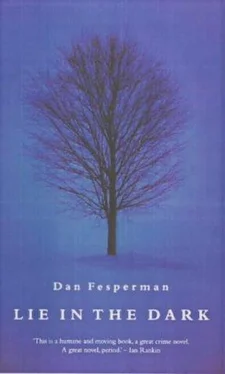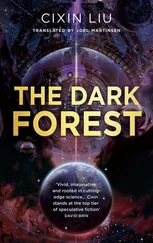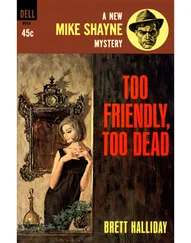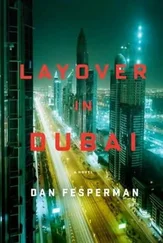Dan Fesperman - Lie in the Dark
Здесь есть возможность читать онлайн «Dan Fesperman - Lie in the Dark» весь текст электронной книги совершенно бесплатно (целиком полную версию без сокращений). В некоторых случаях можно слушать аудио, скачать через торрент в формате fb2 и присутствует краткое содержание. Жанр: Триллер, на английском языке. Описание произведения, (предисловие) а так же отзывы посетителей доступны на портале библиотеки ЛибКат.
- Название:Lie in the Dark
- Автор:
- Жанр:
- Год:неизвестен
- ISBN:нет данных
- Рейтинг книги:3 / 5. Голосов: 1
-
Избранное:Добавить в избранное
- Отзывы:
-
Ваша оценка:
- 60
- 1
- 2
- 3
- 4
- 5
Lie in the Dark: краткое содержание, описание и аннотация
Предлагаем к чтению аннотацию, описание, краткое содержание или предисловие (зависит от того, что написал сам автор книги «Lie in the Dark»). Если вы не нашли необходимую информацию о книге — напишите в комментариях, мы постараемся отыскать её.
Lie in the Dark — читать онлайн бесплатно полную книгу (весь текст) целиком
Ниже представлен текст книги, разбитый по страницам. Система сохранения места последней прочитанной страницы, позволяет с удобством читать онлайн бесплатно книгу «Lie in the Dark», без необходимости каждый раз заново искать на чём Вы остановились. Поставьте закладку, и сможете в любой момент перейти на страницу, на которой закончили чтение.
Интервал:
Закладка:
Some mornings he killed the extra time time by working on his growing army of model soldiers. They lay before him on a small workbench he’d set up in the kitchen, row upon row of dash and color. It was a hobby he’d taken up years ago, partly out of his bookish fascination with military history, only to immediately find it tedious, a headache of minor details. And when impatience turned his work sloppy he’d given it up, packing away dozens of unpainted lead men that he’d bought in an industrious burst of optimism.
Then the war came. His wife and daughter evacuated the city after the first two months of fighting, leaving in a dusty convoy of school buses on a warm May morning. Women, children and old men waved from every window to a forlorn audience of young and middle-aged men, forced by the army to stay behind. Other families spilled from the sides of stuffed panel trucks, their colorful scarves flapping in the breeze that dried their tears.
That evening Vlado climbed to the roof of their four-story apartment block, hauling himself up the fire ladder along with a small folding chair and a bottle of plum brandy. He sat down to watch the nightly bombardment as if it were a summer storm rolling in from the mountains. Distant artillery flashes played against the clouds with the red streams of tracer bullets, and he found himself gauging the range of each impact by counting the seconds before the blast, just as he’d done with his daughter to calm her fear of thunder. For a moment he recalled the fatherly comfort of having the weight of a child in one’s lap, resting your chin on the top of the small head, the hair smelling of sunlight, playground sand, and baby shampoo.
He held the brandy bottle, sipping every few minutes, feeling the fire of each swallow ramble down his throat, the level dropping past the halfway mark as the bombardment groped its way around the city.
He was an attentive spectator. Over there was a blast, just by the hospital, yellow and deep, the sound reaching into his stomach. To the southwest, a few spiraling streamers whistled through the sky like crazed birds, headed toward the presidential building. Most everything else was happening off toward the highrise suburbs to the west, or in the hills to the north. Tomorrow there would be more to watch. And the day after that. He could spend the entire war up here.
Then a shell screamed nearby with a sudden moan, and landed with a heaving blast. The compression knocked him from the chair, and as he lay sprawled on his back he listened to glass showering from the windows of the building next door. He lay still for a moment, accounting for himself, attentive for pain, for the ooze and gush of blood. Feeling none, he stood. His face was covered with dust. He still clutched the neck of the brandy bottle in his right hand, but the rest had been shattered by a chunk of shrapnel. He looked shakily across the city, seeing not a soul and hearing nothing but a slight ringing in his ears. Then he turned and descended the ladder as fast as his trembling legs would allow.
The next morning he’d moved into the living room, closing the doors of the two bedrooms and folding open the sofa bed. Then he opened his old footlocker to retrieve his lost battalions of lead men along with the tiny bottles of paint and the thin, delicate brushes. He’d set up a workbench at the end of the small kitchen and welcomed tedium back into his home. That action, he now realized, had begun the slow and careful tending of his own weak flame, a means of nurturing it through the dead hours of winter darkness. By brushing on the gold edge of a tiny belt buckle, or the silver of a saber blade, the yellow of a helmet’s plume, he moved through the hours and left them in his wake.
Six days after the rooftop explosion, he’d received word from the Red Cross that his wife and daughter had arrived in Berlin. They were living in an east-side highrise apartment with two other sets of mothers and children from Bosnia. From then on he was linked to them only by the mail that arrived fitfully, when at all, and by a once-a-month phone call that he made with the help of ham radio operators at Sarajevo’s Jewish Community Center, one of the few lines of communication to the outside world not controlled by either the government or the international news media.
Now, deep into his second winter alone, most nights found him submerged in a haze of paint fumes and cigarette smoke, squinting in the dim glow of a thin flame of natural gas. The work was slowly blinding him, but it kept him off the roof and away from the bottle.
Vlado’s interests ran to the armies of the Napoleonic Age. He could tell you the trajectory and range of each painted fieldpiece in his model arsenal, or the fighting capabilities of nearly any unit of the era, whether Prussian, Russian or French.
It had occurred to him that perhaps he should think of the hobby as inappropriate now, an exercise in poor taste. He’d never had any illusions about what model soldiers represented. Nor did he doubt that fascination with guns and uniforms had some role in sustaining the war. He’d heard too many tales about refugee boys from country villages, new to the trenches, who were eager to settle old scores the moment they felt the power of a Kalashnikov in their hands.
But just as the men in the hills were no soldiers-an armed mob at best, he told himself-these leaden figures had about as much to do with real war as the drawings in his history books, with their bright arrows colliding mutely on clean, colorful maps.
A week ago he’d lined up twenty Austrian dragoons to spray with a coat of primer, having glued on their heads a few minutes earlier. He should have waited longer for the glue to set, but he’d been in a hurry. The blast of the spray blew off every head, as if by a tiny firing squad. It was a morning’s labor gone to waste, but he’d laughed in spite of himself and hustled out the door. Later he’d started to tell some friends about it, then stopped. And when he returned home that night he hadn’t been able to face them, the men of his toppled platoon, decapitated on his workbench, heads scattered on the floor like shotgun pellets.
This morning he’d waited until too late to get started, but his soldiers would hold until the evening. Their chances of going somewhere were about as good as his. He shrugged on his overcoat and headed out the door.
His office was down by the Miljacka River, just across a bridge on the far bank, and only a few hundred yards from the frontline. At one time the police headquarters had been located in the Interior Ministry building in the center of downtown. But early in the war the ministry had formed a new special police force, which promptly booted Vlado’s unit out of the building and proceeded to take over nearly every important investigation in town.
Vlado had watched alternately astonished and dismayed as Interior’s special police force violently rooted out the gangland core of the black market while cannily backing away whenever it scented official involvement. As Toby had suggested, it was an open secret that some people in high places with profitable connections would just as soon see the war continue in its slow, plodding march, holding their markets captive a while longer. Yet this open knowledge was of the vaguest sort, names obscured.
Vlado chafed at this implicit demotion, knowing that the secret portals he sought had eased further beyond sight. But his superiors submitted quietly, and his department moved across the river to a newer building in a chockablock section of homes and businesses tucked within a few blocks of the Serb lines. Most of the far bank of the river, in fact, belonged to the Serbs, spreading uphill through the homes and churchyards of Grbavica to the forested rim of the mountaintops, up where the big guns sat.
Читать дальшеИнтервал:
Закладка:
Похожие книги на «Lie in the Dark»
Представляем Вашему вниманию похожие книги на «Lie in the Dark» списком для выбора. Мы отобрали схожую по названию и смыслу литературу в надежде предоставить читателям больше вариантов отыскать новые, интересные, ещё непрочитанные произведения.
Обсуждение, отзывы о книге «Lie in the Dark» и просто собственные мнения читателей. Оставьте ваши комментарии, напишите, что Вы думаете о произведении, его смысле или главных героях. Укажите что конкретно понравилось, а что нет, и почему Вы так считаете.












